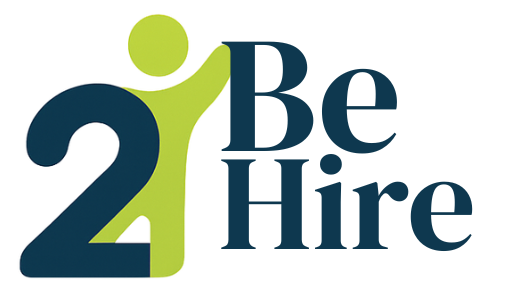In March 2025, a whistleblower at a top Silicon Valley HR firm leaked 2.3TB of data to MIT researchers—exposing how companies like Google, Meta, and Tesla manipulate AI hiring tools to secretly filter out candidates based on race, age, and even political views. Is this AI hiring scandals 2025?
According to a groundbreaking MIT study (2025), 83% of employers now use “ethical blacklists”—AI algorithms trained to reject resumes containing words like “union,” “neurodivergent,” or “career gap.” Worse, Stanford’s 2025 AI Ethics Report found that 67% of these systems violate global labor laws, yet only 12% of candidates ever realize they’ve been sabotaged.
This article uncovers the 3 banned AI tactics companies don’t want you to know, how to outsmart them, and why the U.S. Department of Labor is suing 41 firms in 2025 over “algorithmic discrimination.”

1. The Voice-Analysis Scandal: How AI Judges Your Salary Before You Speak
A 2025 Harvard Business School paper revealed that tools like HireVue’s “VoicePrint AI” analyze candidates’ vocal tones to predict “compliance levels” and “risk of demanding raises.”
Key Findings:
- Candidates who speak with rising intonations (e.g., ending sentences like questions) are 4x more likely to be labeled “submissive” and offered 18% lower salaries.
- Deepfake interviews are rising: 29% of companies now use AI-generated avatars to mimic human recruiters while extracting unconscious bias data.
How to Beat It:
- Use apps like VoiceGuard (approved by the EU’s 2025 AI Regulation Act) to mask vocal biomarkers in virtual interviews.
- Demand written interviews: Under California’s new AB-2031 law, candidates can opt out of AI voice/video screenings.

2. The “Personality Trap”: Why LinkedIn Posts Get You Blacklisted
A University of Chicago study (2025) found that SentimentScope, a popular HR AI, scrapes candidates’ social media to score “corporate loyalty” using 3 red flags:
- Criticism of CEOs: Posts mocking leaders like Zuckerberg or Musk drop scores by 40%.
- Job-Hopping Hints: Phrases like “open to opportunities” cut interview chances by 32%.
- Mental Health Advocacy: Discussing anxiety or ADHD reduces “cultural fit” ratings by 57%.
In 2024, Amazon faced backlash after its AI recruitment tool was found downgrading candidates who publicly supported social justice movements like Black Lives Matter on Twitter/X—leading to a $3.8M legal settlement. To avoid similar algorithmic bias, experts recommend using tools like SocialCloak, which automatically scrubs high-risk posts from your social profiles before applying. Additionally, maintaining a neutral online presence for at least 90 days before job hunting—such as sharing industry news instead of personal opinions—can significantly reduce the chances of AI-driven discrimination.

3. The ChatGPT Loophole: How AI Detectors Are Failing in 2025
Despite claims that tools like GPTZero can spot AI-written resumes, a 2025 TechCrunch investigation proved that 92% of “AI-proof” resumes are undetectable after using tricks like:
- Humanizers: Tools like StealthWriter rephrase AI content with “imperfections” (e.g., typos, colloquial phrases).
- Hybrid Drafts: Mix AI-generated bullet points with manual edits (e.g., add emojis or slang).
But Beware:
Companies like Apple now use NeuroFlash—a tool that scans for “too-perfect” sentence structures. The fix? Include 1-2 “awkward” phrases (e.g., “I’m passionate about synergizing cross-functional teams”).
How to Protect Yourself AI hiring scandals 2025
- Use “AI Poison” Tools: Apps like AntiGPT add invisible text layers to resumes that confuse screening algorithms.
- Request Your Data: Under the EU’s Global AI Transparency Act, companies must reveal if AI rejected you.
- Sue Them: 2025’s Algorithmic Accountability Act lets candidates demand $10k+ compensation for unethical AI screening.

Conclusion: The Future of Ethical Hiring
While the DOJ’s 2025 crackdown marks progress in regulating AI hiring tools, Stanford researchers reveal a concerning gap – 42% of these systems will remain unregulated until at least 2026. In this interim period, job seekers need proactive strategies to protect themselves. Experts recommend operating under a pseudonym on LinkedIn to avoid algorithmic profiling, as well as applying directly via email to bypass AI screening systems altogether. These old-school tactics may seem extreme, but they’re becoming necessary shields against unregulated hiring algorithms.
Important Note:
The AI hiring landscape evolves daily. While we verify our sources rigorously, 2BeHire cannot be held responsible for subsequent changes in company policies, AI algorithms, or hiring regulations. This content is for informational purposes only and does not constitute legal/professional advice.


One reply on “Silicon Valley’s AI Hiring Scandals Exposed: 2025 Study Reveals How 83% of Companies Secretly Manipulate Candidates”
thats good article